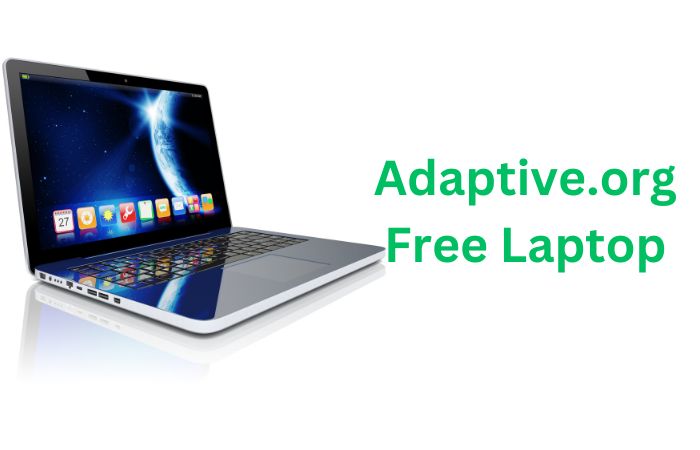Free Laptop from School: How to Get, Top 5 Offers
In the contemporary educational landscape, laptops have become indispensable, transforming the way I, and many students like me, learn, research, and handle assignments. To us, a laptop isn’t merely a gadget; it’s our portal to vast knowledge, our canvas for innovation, and our link to peers and educators.
Yet, there’s an evident challenge to the cost of these essential tools. Like many of my peers, I’ve faced financial hurdles that made owning a laptop seem like a distant dream.
Fortunately, numerous institutions and organizations recognize this need and have set up programs to provide students with free or cost-effective laptops, ensuring everyone gets a fair shot at academic success.
In this piece, I will narrate my personal experience of securing a free laptop from school and highlight the profound impact such initiatives have on a student’s educational journey.
What is the Free Laptop from School Offer
In the vast realm of educational support, the “Free Laptop from School” initiative stands out as a beacon of hope for many students like me. But what exactly is this offer?
The “Free Laptop from School” program is more than just a generous gesture; it’s a strategic move to level the academic playing field. Recognizing the pivotal role that technology plays in modern education, this initiative aims to ensure that every student has access to the digital tools necessary for comprehensive learning. It’s about bridging the technological divide, ensuring that no student is left behind due to a lack of resources.
While the program is undeniably beneficial for all, its primary focus is on assisting students from low-income families. Many of us, despite our academic aspirations and capabilities, are often hindered by financial constraints. This program targets students like me, who, due to economic challenges, might find it difficult to afford such essential tools. By providing laptops to this demographic, the initiative not only supports our academic endeavors but also instills a sense of confidence and belonging, reinforcing the idea that every student deserves an equal shot at success.
Top 5 Universities Providing Free Laptops
In my quest to find educational institutions that prioritize students’ technological needs, I came across several esteemed universities that have taken commendable steps in this direction. Here are some of the top schools that have made significant strides by offering free laptops to students like me:
1. Duke University
At the forefront of academic excellence, Duke University understands the importance of integrating technology into education. Recognizing the challenges some students face in procuring essential tech tools, Duke offers free laptops to its incoming first-year students, ensuring they embark on their academic journey fully equipped.
2. Michigan State University
Michigan State’s commitment to inclusivity and equal opportunity is evident in its initiative to provide free laptops. Specifically targeting first-year students who are Pell Grant recipients, the university ensures that financial constraints don’t impede a student’s access to technology.
3. The University of Notre Dame:
With a rich legacy of academic prowess, The University of Notre Dame extends its support to incoming first-year students by offering them free laptops. This initiative, especially directed towards those admitted to the university’s College of Arts and Letters, is a testament to Notre Dame’s dedication to fostering an environment where every student thrives.
4. The University of Akron:
The University of Akron’s Honours College stands out not just for its rigorous academic programs but also for its commitment to student welfare. All incoming first-year students of this college are provided with free laptops, ensuring they have the tools to excel in their studies.
5. The University of California, Riverside:
UC Riverside, known for its diverse student body and innovative research programs, also prioritizes students’ technological needs. All incoming first-year students admitted to the university’s Academic Senate are beneficiaries of free laptops, a move that underscores UCR’s dedication to creating a holistic and inclusive academic experience.
Steps to Get a Free Laptop from School
Navigating the process of securing a free laptop from school might seem daunting at first. However, with a clear roadmap, students like me can effectively tap into these beneficial programs. Here’s a step by step guide to help you understand the process:
Step 1: Research Available Programs:
The first and foremost step is to gather information. Dive into your school’s official website, visit the financial aid office, or consult academic advisors. Some schools have dedicated sections on their websites highlighting such initiatives. Being well-informed ensures you don’t miss out on any opportunities.
Step 2: Determination of Eligibility:
Once you’ve identified potential programs, it’s crucial to understand their eligibility criteria. While some schools offer laptops to all incoming students, others might have specific requirements based on financial need, academic achievements, or enrollment in particular courses or colleges. Ensure you fit the bill before proceeding.
Step 3: Submission of Required Documents:
After confirming your eligibility, gather all the necessary documentation. This might include proof of financial need, academic records, and other relevant personal information. It’s essential to be thorough and accurate in this step, as any discrepancies can lead to delays or disqualification.
Step 4: Awaiting Approval and Laptop Collection:
Once you’ve submitted all required documents, patience is key. Schools often have a review process to verify the information provided. Upon approval, you’ll typically receive a notification detailing the next steps. This will include information on where and when you can collect your laptop. Ensure you follow any given guidelines or timelines to ensure a smooth collection process.
Eligibility Criteria
For students like me, understanding the eligibility criteria is paramount to successfully securing a free laptop from school. These criteria ensure that the laptops reach those who genuinely need them and can make the most of this valuable resource. Here’s a breakdown of the typical eligibility requirements:
1. Enrollment Status:
The primary criterion is your status as a student. Most programs require you to be actively enrolled in the institution offering the laptop. This could mean being an incoming first-year student or a continuing student in specific programs or colleges within the university.
2. Financial Need Proof:
One of the main reasons schools offer free laptops is to support students facing financial challenges. As such, you’ll often need to provide evidence of your financial situation. This could be in the form of income tax returns, statements of financial aid, or other official documents that showcase your or your family’s financial standing.
3. Academic Performance:
While the primary focus is often on financial need, some programs also consider academic performance. Maintaining a certain GPA, showcasing consistent academic achievements, or being part of specific academic programs or honors societies might be prerequisites for eligibility.
4. Completion of Paperwork:
Last but certainly not least, you must ensure that all required paperwork is completed accurately and submitted within any given deadlines. This includes application forms, financial statements, academic records, and any other documents the program specifies. Incomplete or late submissions can jeopardize your chances of receiving a laptop.
Required Documentation
To streamline the process of obtaining a free laptop and to ensure transparency and fairness, schools often require specific documents from students like me. These documents validate our claims and help the institutions make informed decisions. Here’s a detailed look at the typical documentation required:
1. Proof of Financial Need:
This is a pivotal document that showcases your financial situation and the need for support. It could be in the form of:
- Financial aid statements or grants received.
- Scholarships that are based on financial need.
- Other official documents that highlight financial constraints.
2. Academic Records:
Your academic achievements and consistency in performance play a role in some programs. Therefore, you might need to provide:
- Transcripts showcasing your GPA and course grades.
- Certificates or awards received for academic excellence.
- Enrollment verification or a letter of acceptance, especially if you’re an incoming student.
3. Parental/Guardian Information:
For students who are minors or dependent on their parents/guardians, the school might require additional information to assess the overall financial situation. This could include:
Parental income statements.
Employment details of parents or guardians.
Other relevant financial details that contribute to the household’s economic status.
4. Income Tax Statements:
A comprehensive view of one’s financial situation often requires a look at income tax statements. These documents provide a clear picture of annual earnings and financial commitments. You might need to submit:
- Your personal income tax returns, especially if you have a job or other sources of income.
- Parental or guardian income tax returns, to assess the family’s financial health.
Offer Top-Tier Free Laptop from School/College
For students like me, having a reliable laptop is crucial for academic success. Recognizing this, many schools, as part of their free laptop programs, offer top-tier models that are both durable and efficient. Here’s a closer look at some of the popular laptop models that are commonly provided:
1. Dell Inspiron
A versatile choice for students, the Dell Inspiron series is known for its robust performance and durability. With a sleek design and reliable battery life, it’s ideal for both classroom note-taking and intensive research projects. Its user-friendly interface and compatibility with various software make it a favorite among many educational institutions.
2. Lenovo ThinkPad
The Lenovo ThinkPad is synonymous with resilience and efficiency. Designed with a business-oriented approach, it boasts top-notch security features, making it safe for storing academic data. Its ergonomic keyboard and high-resolution display make it perfect for long study sessions and multimedia projects.
3. Apple MacBook Air
A favorite for its lightweight design and powerful performance, the Apple MacBook Air is a premium choice for students who prioritize aesthetics along with functionality. With its high-resolution Retina display and efficient macOS, it offers a seamless user experience, making tasks like video editing, programming, and graphic design a breeze.
4. HP Elitebook
The HP Elitebook series stands out for its security features and sleek design. Built for professional use, it offers students the reliability they need for their academic endeavors. With a sturdy build and a long-lasting battery, it’s ideal for students on the go, ensuring they stay connected and productive.
Benefits of the Free Laptop Program
The “Free Laptop from School” initiative is more than just a program; it’s a transformative step towards fostering a more inclusive and effective educational environment. For students like me, the benefits are manifold and deeply impactful. Here’s a closer look at the advantages of such programs:
1. Access to Online Resources:
In an era where vast amounts of information and educational content are available online, having a laptop ensures that students can tap into these resources. From online libraries and research databases to educational platforms and virtual classrooms, a laptop provides uninterrupted access, enriching our learning experience.
2. Improved Academic Performance:
With the right tools at our disposal, students can better engage with coursework, conduct research, and complete assignments efficiently. The convenience of having a personal laptop often translates to improved focus, organization, and ultimately, enhanced academic outcomes.
3. Financial Relief for Students and Families:
The cost of education is a significant burden for many families. Add to that the expense of essential tools like laptops, and the financial strain becomes even more pronounced. By providing free laptops, schools alleviate considerable financial pressure, allowing students and their families to focus more on the learning journey rather than the associated costs.
4. Equal Technological Access for All Students:
One of the most commendable aspects of the free laptop program is its emphasis on equity. By ensuring that every student, irrespective of their financial background, has access to a laptop, schools are leveling the playing field. This move ensures that all students, regardless of socio-economic status, have an equal opportunity to harness the power of technology in their academic pursuits.
Frequently Asked Questions (FAQs)
What happens if the laptop gets damaged or lost?
Most schools have specific policies in place for such scenarios. In the event of minor damages, the institution might offer repair services, possibly at a subsidized cost. For significant damages or loss, students might be held responsible and could be required to pay a fine or replace the laptop. It’s essential to familiarize oneself with the school’s terms and conditions regarding laptop care and responsibility.
Am I allowed to install my software on the laptop?
Typically, the laptops provided come with pre-installed software essential for academic tasks. While students are generally allowed to install additional software, there might be restrictions on certain types of software to ensure the device’s security and performance. It’s advisable to consult the school’s IT department before making significant software changes.
How long can I keep the laptop?
The duration varies based on the school’s policy. Some institutions allow students to retain the laptop for their entire academic tenure, with the option to purchase it at a reduced price upon graduation. Others might require the laptop to be returned at the end of each academic year or upon completion of the degree. It’s crucial to understand the terms of possession to avoid any unexpected complications.
Conclusion
Free laptop programs in schools are more than just a nod to technological advancements; they symbolize a progressive move towards a fairer and more inclusive educational landscape. By addressing the tech gaps faced by students, these programs not only create an even academic ground but also enhance opportunities for scholastic achievement. Equipped with the right tools, students can delve deeper into diverse resources, immerse themselves more fully in their learning, and set themselves on a path to realizing their educational aspirations. Recognizing the profound impact of these initiatives, it becomes crucial for students to seize these chances, ensuring that their educational journey remains one of exploration, development, and infinite possibilities.




